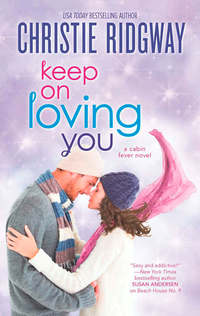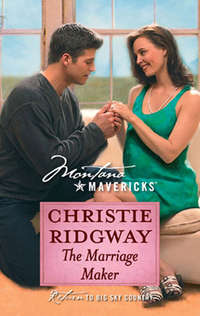
Полная версия
Beach House No. 9
Ted watched the dog gobble it down. “We should probably keep the canine treat-sharing sorta secret, okay? Our furry buddy here eats that low-cal kibble, and Griffin’s always after me when I feed him scraps.”
“Oops.” She made a face. “He won’t hear it from me.”
“As a matter of fact,” Ted continued, “you won’t tell Griff we visited at all, will you? We’re under strict instructions to avoid No. 8, but Private isn’t so good with orders.”
Jane sighed. So much for optimism. “I suppose that means I shouldn’t expect Griffin to start cooperating with me anytime soon.”
The surfer shrugged, his expression sympathetic. “Well, he did close down Party Central.”
Hope lightened her mood a little. “Does he look like he’s buckling down to work? You know, sitting at a table with a laptop or a pad and pen?”
Ted ran his hand over his hair. “He’s in a chair. Like you said, at a table.”
Ha! Jane felt herself smiling. “That’s good! That’s very good.”
“But there’s no computer. And I haven’t seen a scrap of paper or a writing implement anywhere in the house.”
Jane considered this. “Do you suppose he’s working it out in his head? Making mental plans, might you say?”
“He’s got his iPod blasting so loud that I don’t believe he can hear himself think,” Ted replied. “And he’s playing cards. Hand after hand of solitaire.”
Man and dog left soon after that, and their visit made Jane dispirited enough that she ate two more cookies—pessimism apparently made her hungry too—while staring morosely into the distance. First it was the warning of wolves and dragons, she thought as she munched. Next it was news of a recluse firmly ensconced in his cave. This did have the feel of a fairy tale.
She took up the glass plate and set it beside Rex’s album on the dining table. Then the front door reverberated with yet another round of knocking, and she turned to trudge toward it. “What now?” she muttered, as she pulled it open. “A troll?”
Griffin narrowed his eyes at her. “My mood is a lot uglier than that.”
She stepped back to avoid the brush of his body as he barged inside. Though she realized she should welcome him onto her turf, there was a disturbing aura about him. He moved into the small living area, his wide shoulders and simmering temper making the room feel a lot smaller and a lot…hotter.
A memory from the night before burst in her head. His hard hands gripping her bare shoulders. The sandpaper feel of the whiskers edging his lips. The thrust of his tongue, the clack of his teeth against hers, the almost violent edge to the unexpected kiss.
Her stomach muscles had contracted, and though she’d been quaking beneath his touch, she’d opened her mouth wider, succumbing to the insistent demand of his. Beneath her bikini top, her nipples had stiffened, and she’d pressed closer to ease the ache.
When his fingers had tightened on her skin, she’d thought his touch might be tattooed there forever, and her only regret was all the other places he’d yet to make contact.
Then in a move as aggressive as the kiss itself, he’d put her away from him. She’d staggered back, dazed, her gaze on his stiff back as he’d stalked off.
It had taken two hours and a cup of black coffee to realize he’d been using sex to scare her away. Well, not exactly sex…okay, it was exactly sex. A kiss, she realized now, a kiss from Griffin, could be as intimate as any full body connection she’d had with another man. Her nerve endings were still smoking from it.
“Don’t look at me like that,” Griffin barked.
She felt a blush rise up her neck. “I don’t know what you’re talking about.”
He rolled his eyes, then stalked farther into the room and threw himself down on the couch. “What will it take to get you out of here? You’re making me nuts. I can feel you all the way at No. 9.”
“That’s ridiculous.” Lust couldn’t travel that far, could it? A governess’s lust surely didn’t have that kind of power. One spoke Jane’s name in a hush, and heretofore her sexual desires had been fairly muted as well. “It’s just your guilt talking.”
He rocketed to his feet. “You deserved that damn kiss, walking around with all that skin, and especially with that…that…” His vague gesture seemed to indicate her hair.
She put a hand to it. “I can’t help that it’s fuzzy,” she said in a defensive tone. “And anti-frizz serum makes it sticky.”
“What the hell are you talking about?”
“I don’t know.” It was true. With him in this small room, the air crackled with an energy that was messing with her brain synapses. “I thought you were complaining about my hair.”
“It’s not your hair.” He glared at her. “It’s your mouth. Can’t you do something about that?”
She put her hand over her lips, embarrassed all over again. Ian had once commented on it as well. “A former boyfriend called it a silent-movie-star mouth,” she heard herself confess. At the time, she’d pictured photos of famous actresses of the era with their waiflike features and bow-shaped lips and been uncertain what to think.
“God knows I want to tie you to some railroad tracks,” Griffin muttered.
She imagined his hands on her, winding rope around her wrists and ankles, and another flare of heat shot over her skin. Her palms were sweating, and she buried them in her pockets. Oh, Jane, she told herself, looking away from his tight jaw and angry eyes, we’re definitely not in the library stacks anymore.
“This is ridiculous.” He was muttering again, and now he began to pace about the room. “There’s got to be some way for me to get out of this.”
Thoughts of bondage fled. Jane was here so Griffin wouldn’t get out of this! If he ducked his obligations, she’d lose her chance to recoup her reputation. Worse, some might misconstrue his failure as a result of something she’d done. If she left Crescent Cove without seeing Griffin through to his deadline, her good standing would be further harmed. Irretrievably, maybe. No doubt Ian Stone would be the first to proclaim that she’d left yet another author in the lurch.
Alarm refocused her mind on important matters, and she crossed to the album that Rex Monroe had delivered to her. “Griffin’s tear sheets from Afghanistan,” he’d told her, meaning copies of every article published during his embedded year. She’d been eager to read through the pages, figuring that by familiarizing herself with what he’d written she’d be better able to help shape his memoir.
“The only way to get out of this,” she told Griffin in a firm voice, “is by getting to your contractual obligation. By telling this story.” With that, she flipped open the volume.
On Our Way, the first magazine article’s headline read. Beneath it was a photo of Griffin, clean-shaven, smiling, his arm around an exotic-looking, dark-haired, dark-eyed woman. The caption identified her as Erica Mendoza.
“On our way,” Jane repeated. Puzzled, she looked up.
Griffin’s gaze swept over the photograph, then settled back on her. “You didn’t do your homework like a good governess should, did you, Jane?”
“Uh… Maybe not.” His agent had phoned, and she’d leaped at the opportunity, then rushed to Crescent Cove once she’d realized Griffin wouldn’t take her calls. She touched a fingertip to the lovely face so close to his in the picture. “Who’s this?”
“The original book deal was supposed to be like the articles themselves,” he answered. “A ‘he said, she said’–style account of our embedded year.”
“He said, she said,” Jane repeated. “Our embedded year.”
“Right,” Griffin agreed, his voice impassive. “Our embedded year. He said, she said.”
She waited, watched him take a breath.
“But now…” Griffin said. “She’s dead.”
CHAPTER FOUR
GRIFFIN WATCHED Jane rock back on her heels as shock settled on her face. Such an expressive face it was, those big eyes wide, her soft lips parting on a sudden breath. She had a baby’s skin, fair and fine-pored, molding the delicate bones of her cheeks and the clean edges of her jaw. Despite her bluster, her fragility didn’t stand a chance against him.
Hell, he bet he’d have her running by nightfall.
“What happened?” she asked.
“That story you’re so eager for me to write, honey-pie?” Griffin gestured at the album of collected magazine pieces, though he avoided glancing at the photo of Erica. “I better warn you, it’s got blood and gore.”
Jane flinched. For a second he thought he might have scared her off with just that, but then she drew out one of the dining chairs and took a seat. A cool cucumber once again. “Why don’t you tell me about it?”
A sudden urge to bolt cramped his gut, but he rode out the impulse. This was one of two memories of that year he didn’t have to stave off with rock ’n’ roll blasting through a pair of earbuds or the monotone chatter of news from his big-screen TV. While an auto’s backfire could have him crouching to protect himself from small-arms fire, or the cry of a seagull take him straight to the nights when the monkeys shrieked from the craggy mountains surrounding the base in Afghanistan, thoughts of Erica raised a wall between him and the rest of the world.
“We each had a different sponsoring magazine, both owned by the same publishing company,” he said, moving back so he could lean against the nearby wall. “The newsweekly was paying my way. Erica was the first embedded war journalist on assignment for what’s generally considered a women’s fashion publication.”
Jane glanced at the collection of tear sheets. “Brave lady.”
“Dogged.” He didn’t want to examine too closely right now what, exactly, she’d been so determined to accomplish, so he pushed the question away. “It’s a man’s world out there. Every ten or fourteen days, we rotated to a slightly larger base for a chance at a hot meal and water to wash with, but the rest of the time it was MREs and our own sweat. The guys pissed into PVC pipes stuck in the ground.”
Griffin eyed Jane, trying to picture her among the soldiers in his platoon. Erica had been bold and bawdy, coping with the almost-adolescent sexual bravado of the young men by telling jokes so dirty they could almost make him cringe. Jane, on the other hand… She’d probably faint dead away.
As if reading his mind, the blonde straightened in her chair, her eyebrows drawn together and down. “Don’t stop on my account. Three summers in a row my dad hauled my brothers and me out to the Arizona desert while he conducted fieldwork studying an elusive reptile. One of my first jobs in this business? I assisted a man ghostwriting the autobiography of a notorious metal band’s lead singer. To get ‘color,’ I rode with them on their reunion tour bus for a month. I might look sheltered, but I assure you that’s not the case.”
Her annoyance bemused him. “What elusive reptile was that?”
She didn’t blink. “The Black-and-Green Spotted Hootswaggle.”
“You made that up.”
Her little movement might well have been a flounce. “So? I’ve forgotten its real name. My father always says I have no head for science.”
Yet she’d survived those arid summers and then four weeks with the kind of band infamous for debauchery. “Did you, uh, date any of those band members?”
“Well, I did make sure I had all my shots up to date before the tour—you know, rabies, distemper, smallpox and the like—but no, tempted as I was by scrawny men wearing leather pants and hair extensions.”
She made him smile. Not only was she funny with her dry way of delivery, but for some reason it pleased him to know some ancient lecher with a groupie list a mile long hadn’t touched the baby skin, kissed the tender mouth.
That mouth that was part silent star, part very bad girl.
“But we’ve gotten off the subject,” Jane continued.
Damn it, she made him do that too, Griffin realized. He was supposed to be sending her on her way, not smiling at her.
The governess gestured at the tear sheets again. “We were talking about Erica.”
In his mind’s eye he saw the women who had populated their remote outpost. It wasn’t the single real one he pictured, however. Instead he saw their other female companions—the naked centerfolds taped to the plywood walls, their humongous breasts and big white smiles fly-speckled, their expressions creepily come-hither as their paper selves watched over the boys ever ready to risk their lives. One young man had a morning ritual of kissing the paper nipples for luck.
“Erica…” Jane prompted again.
He ran his hand over the back of his neck. “A patrol was going out to search the valley for weapon hoards and ratlines—foot trails that are enemy supply routes. The night before I’d been on the same kind of mission myself.”
“But this time was different?” Jane asked.
“There’d been radio chatter.” He looked down at his feet, aware of his own blank tone. Glad that he felt just that way inside. “That day, she shouldn’t have gone with them.”
“Did someone try to talk her out of it?”
“Sure.” He’d thought he’d convinced her not to go, too tired to recognize the set expression on her face and the determined light in her eyes. When she’d left, he’d been sleeping, dosed up on the pills they all swallowed down to find a few hours of relief from the high temperatures and the tension. Until he woke up and found her note tucked between his fingers, he hadn’t known what she’d been planning. “She didn’t listen.”
Erica had only heard what she wanted to hear. About the wisdom of going out that day. About what was going on between her and Griffin.
Jane picked up a cookie from the glass plate in front of her, then put it back down. “What happened?”
“Ambush. Particulars are a little sketchy, as everyone was busy trying to stay alive. They took fire and jumped off the trail. But when they realized she wasn’t with them, they headed back, at their own considerable risk. They found her sitting down, holding her arm. She’d been hit in an artery. Bled out in a matter of minutes.”
Jane pushed the platter of cookies farther from the table edge. “Oh.” Her voice was tight, as if there was a hand around her throat. “That’s terrible.”
Griffin gazed off into the distance. “This one kid, Randolph, he put her body over his shoulder in a fireman’s carry. Her blood stained his vest from his shoulders to his waist. It was the first thing I noticed when he returned. That, and the way tears had turned the dirt on his face to mud.”
Griffin had been sitting against a wall of sandbags, idly watching another guy squeeze cheese onto a granola bar, razzing the man about how the combo made him sick to his stomach. They’d been laughing.
Then Randolph had been standing there. Without a word, Griffin had known. He’d gotten to his feet, then stumbled toward the spot where they’d placed Erica. “I saw her,” he told Jane now. “The dirt in her hair, the stiffening wetness of her sleeve where the blood was already drying, the dusty laces of her boots. One had come undone, and as I stood there, Randolph knelt down and retied it for her.”
His brain had clicked away, cataloging each of those items and more, as if storing them for some later test. The details had seemed to fill a yawning black chasm opening up inside him—leaving no room for anything beyond those cold, bare facts. Leaving no room for any feelings. He’d gone icy inside then, and three days later become completely—perhaps permanently—frozen.
At the time, he’d thanked God.
He was still grateful.
“I’m sorry for your loss,” Jane said.
Puzzled, he looked at her. His loss? It was Erica who had lost everything. But he nodded, knowing it was expected of him, knowing a man who hadn’t been rendered entirely numb would be expected to acknowledge Jane’s expression of sympathy.
“That’s the kind of story you signed up for,” he said. The librarian in her would surely back away from it, right?
“No,” she answered, calm. “That’s the story you signed up for.”
The reminder tapped at the ice inside him. Why couldn’t she leave this alone? His jaw clenched. “Jane—”
“I worked with an author who is a famed outdoor adventurer,” she said. “In his book, he related a tragedy that happened to one of his teams on a mountain climb. They’d stopped for lunch. As they finished, she stood up to reach for something—but had forgotten she’d unclipped from the safety line. Just like that, she went off the side of K2. Gone.”
Griffin pressed against the wall, his shoulders digging into the plaster. “And?” he said, wary.
“And he wrote it just like that. He put it on the page with as much emotion as if he was describing the wind catching his sandwich wrapper. I had to help him include the emotion. You’ll have to do that too.”
He didn’t have the emotion! He didn’t want the emotion!
Shaking his head, Griffin pushed away from the wall. “I don’t need your help, lady.”
“Aw.” She no longer appeared the least bit sympathetic. “And I was just getting used to honey-pie.”
Advice, mockery, he didn’t need any of it. He set his sights on the door. He only had to pass her and her flapping mouth and nosy manner and governess tone and be gone—his composure, his chilly control, still intact.
As he went by, she caught his arm. “You know I’m right,” she said, her voice steady. “And you won’t have to do it alone. I told you. I’ll do whatever you need.”
“And I told you—”
“Griffin, Erica deserves this.”
Erica. Despite his best intentions, his gaze dropped to her photo. It was not how he’d seen her last: lifeless, dirtied, bloodied. It was Erica, vitally attractive. Full of expectations.
Deserving.
As if from a distance, he saw himself wrench his arm from Jane’s hold. Then he scooped up the ruby-colored plate. In a gesture that betrayed a rage and frustration he could swear he didn’t feel, he flung the platter against the wall. Cookies flew. The plate broke, and glass shards rained like drops of blood.
He hurried out of the house, telling himself the mess he’d made was no reflection of his inner self.
* * *
AT THE OPPOSITE END of the cove from Beach House No. 9, Jane sat railside at Captain Crow’s, a restaurant/bar that was one of only two commercial establishments on the beach—the other being an adjacent gallery that sold plein air paintings and beautiful handmade boxes, frames and jewelry crafted from items of the sea. She’d poked her nose inside, taking in sun-drenched landscapes and rainbow-hued earbobs of abalone and beach glass, but her urge to admire couldn’t overshadow her certainty that the open floor plan made it a lousy place to hide.
Now Captain Crow’s, that was another matter.
It was as if Party Central had moved north by a couple miles. Pleasure-seekers peopled the open-air tables and sat elbow-to-elbow on stools pulled up to a narrow, westward-facing counter. Dressed in her usual conservative wear—cropped khakis, a thin, bottle-green button-down shirt and a straw hat settled low on her brow—Jane went unnoticed among the rhinestoned tees and short shorts, the boho skirts and macraméd halter tops. The typical California confluence of Hollywood high culture and laid-back hippie fashion. Nearly overpowering the scent of salt air were the mixed aromas of SPF 30 sunscreen, Rodeo Drive perfumes and top-shelf tequila.
She’d collected a glass of white wine from the bar and slipped onto a free stool, unsure of her next move in her goal of getting Griffin to work. The only short-term certainty was her need to steer clear of him for the moment, giving him a chance to cool off following the plate-throwing incident. Seeing her again too soon might antagonize him further, causing him to do something rash, like ordering her from the cove altogether.
As she took a sip of her straw-colored beverage, she caught a glimpse of Skye Alexander strolling through the restaurant, her roaming gaze suggesting she was looking for someone. Jane pulled her hat lower on her brow and fixed her attention on the orange orb in the blue sky, tracking its descent. She figured it was better to avoid Skye too. Jane wouldn’t put it past Griffin to send the other woman to scout her out…and then toss her from the beach colony, despite the fact that it was his own agent who had hired her. Slumping in her seat, she tried lifting her shoulders to her ears, going Quasimodo as camouflage.
But the world hadn’t gone her way in ages, so she felt the tap on her back with no surprise. Turning, she consoled herself with the knowledge that there wasn’t a free space on either side of her. That thought came too soon as well, though, because someone shouted, and the crowd around her scattered, people rushing down the steps to the sand.
Befuddled, Jane watched them gather near a flagpole at the base of the stairs to the beach. Skye perched on the freed seat next to Jane, her gaze also on the excited throng. A man wearing ragged, low-slung shorts and the ubiquitous tan lifted a conch shell to his lips. The blast of sound set the crowd cheering again, and then a blue flag slowly rose on the pole. When it reached the peak, the bystanders saluted the fluttering fabric. Jane saw it was printed with the universal symbol for martini.
“Cocktail time,” Skye explained. “Five o’clock.”
Jane’s brows lifted, taking in the beverages already in hands, including her own half-full wineglass.
“Official cocktail time at Crescent Cove. This ritual goes back to the fifties.”
“That’s when this beach was discovered?” If Jane kept the other woman talking about their surroundings, maybe she could avoid other subjects. Like Griffin. Like how he was likely in No. 8 right this moment, packing her duffel for her imminent departure. “During the wonder years of tiki parties and limbo games?”
Skye shook her head. “Before then. During Prohibition, rumrunners made it a secret drop-off point for contraband liquor. And before that, during the silent film era, my great-great-grandfather used it as a stand-in for a South Seas atoll. He had a movie company, Sunrise Studios, and trucked in all the tropical vegetation that flourishes here.”
At the mention of silent films, Jane covered her mouth, then glanced down the beach at the colorful residences spilling from the hillside to the edge of the sand. The ocean breeze shivered through the graceful fronds of the date palms shading their roofs and set the long leaves of the banana plants wagging. The creamy faces of plumeria flowers mingled with brighter splashes of hibiscus in yellow, red and pink. The bougainvillea grew everywhere something else didn’t.
She could imagine this place as an exotic backdrop to long-ago movies or as an idyllic vacation getaway. “It really does appear out of another time.”
For no more reason than that, a person would be reluctant to leave. It wasn’t hard for Jane to picture woody station wagons pulled up behind the cottages. She could see the children of the past playing in the surf, riding inflatable rubber rafts instead of the foam boogie boards the contemporary kids were dragging into the water by leashes attached at their ankles. At five o’clock some sunburned man with a crew cut would blow the conch shell, heralding another idyllic summer evening. “Magic,” she murmured.
A foolish notion that she’d always wanted to believe in. Just like love. Her father had detected the weakness in her early on, as clear to him, apparently, as her lack of aptitude in the sciences. “So silly and emotional, Jane,” he would say, shaking his head at her. “Just like your mother.”
Pushing the memory aside, she tuned back in to Skye’s conversation. The crowd had returned to their places, and Jane was forced to lean close to hear over their rowdy chatter. “The earliest houses go back to the 1920s and ’30s,” the other woman was saying. “My great-great-granddad built some of them, my great-grandfather more, but it wasn’t until my mom was pregnant with me that my parents moved here. They live in Provence now, and though I live at the cove full-time, most habitants are seasonal.” She paused. “Like the Lowells.”
Griffin. Their last moments together replayed in Jane’s head, his flattened voice describing what had happened to his colleague Erica in Afghanistan. The neutral tone to his words had been belied by the stiffness of his posture. Even now, Jane could feel the tense muscle of his forearm under her hand and the way he’d wrenched from her hold in order to heave the cookie platter against the wall. It reminded her that she owed Skye a plate…and her client an apology?








